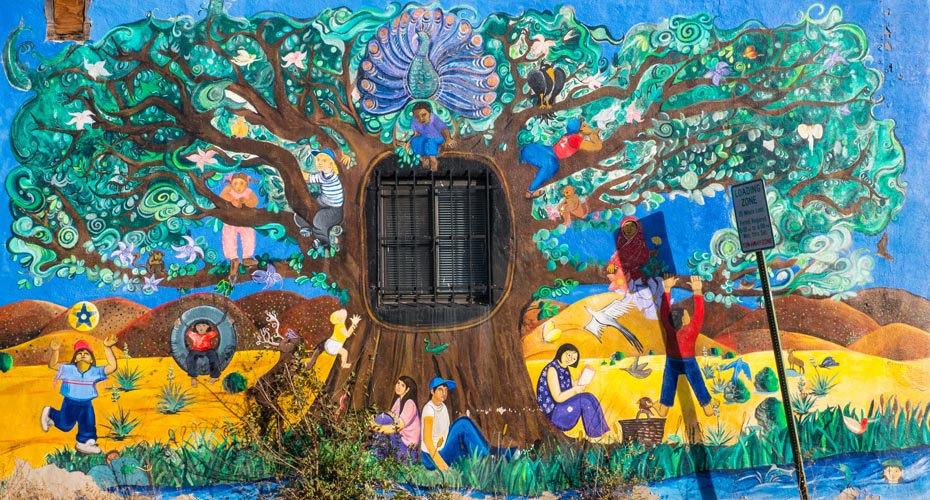Rights, Liberties, Constitutions, States
Nation-states are central to modern politics. Internally, they are typically considered as the guarantors of order, security, and rights, while also acting as dominating powers over the lives and liberties of citizens. Internationally, they are regarded as the rightful holders of national sovereignty and self-determination, though they are often the sources of conflicts, domination, and injustices. Both internally and externally, they have been the main sights of political and constitutional struggles in the modern era. Since the 1990s the forces of globalisation and other related developments have profoundly affected the relations between states and citizens, and between nation-states. The spread of transnational authoritarian practices across different regimes, and of illiberal and national-populist ideologies, have contributed to the reversal of the fin-de-siècle optimism about democratization and a peaceful multipolar international system, overcoming the legacies of colonialism and past dominations. Researchers in the Centre for Political Thought address questions of rights, liberties, and constitutional powers in the changed context of the 21st century. They consider the normative architecture of modern statism and its future trajectory within and beyond the nation state. They investigate whether alternative institutions and principles might be better suited to realising freedom, peace, and social justice in a globalised world.
 |
Dr Dario CastiglioneCentre Co-DirectorDario Castiglione’s main areas of research comprise democratic theory and the history of early modern political philosophy. He has written on representation, citizenship and constitutionalism; theories of civil society and social capital; the constitutional nature of the European Union; the Scottish Enlightenment, Hume and Mandeville; and 18th-century theories of the social contract and of their crittiques, and early modern scepticism. His main current research interests are on representation and political legitimacy; and the way in which political and conceptual discourses translates across linguistic and cultural divides |
 |
Professor Robert LambCentre Co-DirectorRobert Lamb is interested in the history of political ideas, contemporary political theory, and philosophical issues related to the interpretation and understanding of texts. The main focus of his research is the intellectual tradition of modern liberalism – understood very broadly, and from the eighteenth century to the present – and its central political commitments. His published work has concerned historical and philosophical understandings of moral and political concepts such as human rights, property, equality, and freedom, and writers such as Locke, Paine, Rawls, and Rorty. His current research looks at the idea of political hope. |
 |
Dr Catherine OwenCatherine Owen’s main research interests concern participatory governance under authoritarianism, with a focus on Russia and China. Dr Owen’s work explores the ways in which citizens are encouraged to participate in local policy-making and delivery in Russia and China. This research has been published in a variety of articles, and is the subject of an ongoing book manuscript. In addition to this focus, she has also pursued research on decolonial and non-Western approaches to knowledge production in International Relations. |
 |
Dr Alex PrichardAlex Prichard’s research lies at the intersection of International Relations, political theory and anarchist studies. His work focuses on anarchist thought and anarchist constitutional politics in particular, as well as points at intersections and disagreements in anarchist and Marxist philosophies. In addition to this, Dr Prichard is interested in the ethics and phenomenology of war and violence, republican political theory, and co-production methods in political philosophy. In 2012 he co-founded, and now co-edits, the monograph series Contemporary Anarchist Studies, published by Manchester University Press. |
 |
Dr Andrew SchaapAndrew Schaap’s main area of research is contemporary political theory. His book Political Reconciliation drew on the thought of Hannah Arendt to conceptualize reconciliation as a political undertaking in societies divided by a history of state violence. His is broadly interested in theories of radical democracy, and particularly in the politics of migration, racism and anti-racist politics, political struggles of indigenous peoples, transitional justice, politics and literature, and political thought of the twentieth century. |
 |
Dr Kate Goldie TownsendKate Goldie Townsend is a normative political theorist who takes an interdisciplinary approach to interpreting social and political phenomena. She is particularly interested in injustices affecting children and women. She tries to make sense of the world as it is, and to respond to injustices with feasible ideals; her work is methodologically feminist in this respect. Townsend is currently working on two research projects. The first project has two main aims: to defend all children’s right to genital integrity; and to expose moral inconsistencies in current legislation on child genital cutting. The second project examines the normative and political tensions that emerge if both children’s rights and women’s rights are taken seriously within the context of increasing reliance on science and experts to decide policy and inform public morality. She is particularly interested in how scientifically informed understanding about what is in children’s (including foetuses’ and infants’) interest, impacts on norms and policies concerning perinatal women’s bodies. She has recently joined the steering committee for the Children and Young People's Wellbeing @ Exeter Research Network. |
Information of publications is coming soon.
Information of research is coming soon.
Modern authoritarian systems have often been described as 'post-ideological'. This idea of authoritarian systems as lacking a strong ideological basis has long historical roots. In this workshop we challenge this approach and aim to revive interest in the ideological and ideational drivers of contemporary authoritarianism, reflecting a wider turn to ideology in recent work on law, politics and international relations.

Centre members Alex Prichard and Melis Kirtilli organised a workshop on Decentralised Federalism in Anarchist Political Thought, generously funded by the James Madison Charitable Trust and supported by the Centre for Political Thought and the University of Exeter.
As an outcome of the workshop there will be a special issue of Publius: The Journal of Federalism, edited by Alex and Melis.

